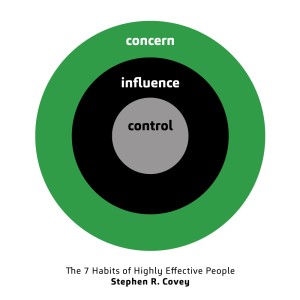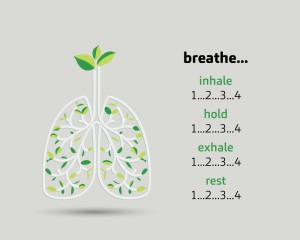Protecting your business: Why expertise matters in workplace investigations
Are you an employer dealing with a serious incident or ongoing situation involving a critical breakdown...
Think about how much time you spend ensuring your mobile phone is charged up and ready to go every day. Then think about how little time you spend actively paying attention to your own mental well-being and level of stress.
Time to read: 7 mins
A certain amount of stress is healthy. It’s our body’s response to help us prepare for challenges. Experiencing stress in small doses can help us to perform... so a little bit of stress is good. But too much stress can be harmful and we all face many situations that trigger our stress response, so we need to make sure we pause and recover.
Our body has an amazing capability to give us signs that we’re under stress, but we don’t always take the hints when these signs continue for too long.
| Some of the warning signs of stress are: | |
|---|---|
| Pains in the lower back, chest, joints, shoulders or other parts of the body | Shortness of breath or shallow breathing |
| Worries, overthinking issues, being stuck on issues | Losing your zest for life; losing interest in family, friends or work |
| Changes in your sleeping pattern | Memory or concentration problems |
| Feeling anxious and tense for no obvious reason | Skin itches or rashes for no apparent reason |
| Indigestion, stomach upsets | Finding it hard to make decisions |
| Frequent colds or flu | Tearfulness for no apparent reason |
| Feeling impatient and irritable | Nervous 'twitches' or muscle spasms |
| Losing confidence | |
When we perceive something as a threat or difficulty, especially if we believe we don’t have the resources to cope, our bodies will trigger the stress response. Our bodies prepare us to be ready to take action to protect ourselves this is often known as a ‘fight or flight’ response.
These responses are very useful when we are in physical danger where we have to move or respond urgently (think back to the cave man running from the tiger). Once the danger has passed, our relaxation response (the parasympathetic nervous system) can be turned on to calm the body down.
However, for most of us today, stress isn’t often triggered by physical danger - we don’t need to run from a wild animal who is threatening our life, so we don’t get an opportunity to burn up that energy and switch off our stress response. This means we need to be consciously managing our levels of stress and the triggers that cause our body to go into the ‘fight or flight’ mode.
When your body perceives danger, it is getting ready to literally run for its life. Although some people experience heightened productivity and ‘perform under stress’, potentially harmful health conditions can occur if constant stress is ongoing and the body does not get a chance to ‘rest and recover’.
While we may not be able to control the situation that triggers our stress response, we can learn how we can change the situation, rethink the problem, or accept what has happened. The three Rs1 to reduce the impact of stress are:
We all face multiple demands on our time and energy. To keep moving, we need to have enough fuel to manage these demands. It’s important to recognise the areas in your life that help you refuel and make time for these. Regular exercise, eating healthy food, doing activities that bring you joy and making time for relaxing, socialising and connecting with others are all important ways we can look after ourselves.
Workplaces need to be proactive in keeping their people’s tanks full, planning for busy times and knowing how and when their people need refuelling, and taking appropriate action.

How we experience the world helps shape what we perceive to be a threat and how well we can cope with what is happening. The world around us, including our culture, beliefs, economic situation, physical health, relationships and our place in communities all provide protective and risk factors for our well-being.
We may not be able to control the situation that triggers our stress response, or we may have multiple causes of stress. When the situation is out of our control, dangerous or has a traumatic impact, support and help from others is often needed.
For other stressors, we can explore what options we have to: change the situation, rethink the problem, or accept what has happened.
Stephen Covey’s Circle of Control Model leads us to question what’s in our personal control and what falls outside of it, helping us to focus on resolving the issues we can that are causing us stress.
Our brains are drawn to focus on the wider circle of concern, and it can be a helpless and overwhelming space to be in. The Circle of Control is a reminder of our ability to influence and the importance of focusing on our circle of control right now e.g.:

Many of us haven’t stretched our ‘relaxation muscles’ in far too long. It might take a bit of trial and error to find what works for you. Maybe it’s switching off with a good book, having a silent disco, talking to a friend, getting creative with some art, yoga, a walk in nature, mindful colouring or journalling. We all need to find things that help us switch off and re-energise our minds and bodies.
Turning on our relaxation response puts a brake on the physical changes in our body, produced by the stress response. It also helps focus your mind on thoughts or actions that feel good interrupting stressful thoughts and feelings.
The most effective and instant techniques to turn on our relaxation response (the ‘parasympathetic nervous system’) is basic deep breathing. This could be in the form of guided breathing or muscle relaxation techniques or meditation. One example of this is ‘square breathing’ go on and give it a go.
There is a large body of evidence suggesting diet is as important to mental health as it is to physical health. Food plays an important contributing role in the development, management and prevention of specific mental health problems such as depression, schizophrenia, attention deficit hyperactivity disorder, and Alzheimer's disease.
By eating fried, high sugar and processed foods you could be increasing your chances of experiencing anxiety and/or depression. By eating real, unprocessed and high-quality foods that contain fatty acids, antioxidants, vitamins and minerals you nourish the brain and protect it from oxidative stress helping to minimise anxiety and fend off depression.
One of the most under-rated restoration approaches to stress reduction and well-being is good old-fashioned sleep.
Stress often influences sleep which has a direct impact on how we live our lives and not getting enough sleep can make your stress worse. Sleep is a powerful stress reducer so following a regular sleep routine calms and restores the body, improves concentration, regulates mood, and sharpens judgment and decision-making. You’re a better problem solver and are better able to cope with stress when you’re well-rested.
Ensure you’re getting your 7-8 hours each night of quality ZZZzzzzz’s and if this is a challenge for you, taking time to analyse your sleep hygiene and bedtime routines can help. And when it comes to sleep, alcohol is NOT your friend it can be the cause of frequent waking.
Changing your health-habits does take a conscious effort. However, by creating new routines, perceptions and habits your mental and physical well-being CAN be improved.
A key element to achieving change is to make some simple commitments. Specifically, note down what three things can you change today to help you reduce stress and improve your well-being! Then follow through so that you give your mental health at least as much attention your mobile phone’s charge bar.
1Mental Health Organisation of New Zealand
DISCLAIMER No liability is assumed by Baker Tilly Staples Rodway for any losses suffered by any person relying directly or indirectly upon any article within this website. It is recommended that you consult your advisor before acting on this information.
Our website uses cookies to help understand and improve your experience. Please let us know if that’s okay by you.
Cookies help us understand how you use our website, so we can serve up the right information here and in our other marketing.